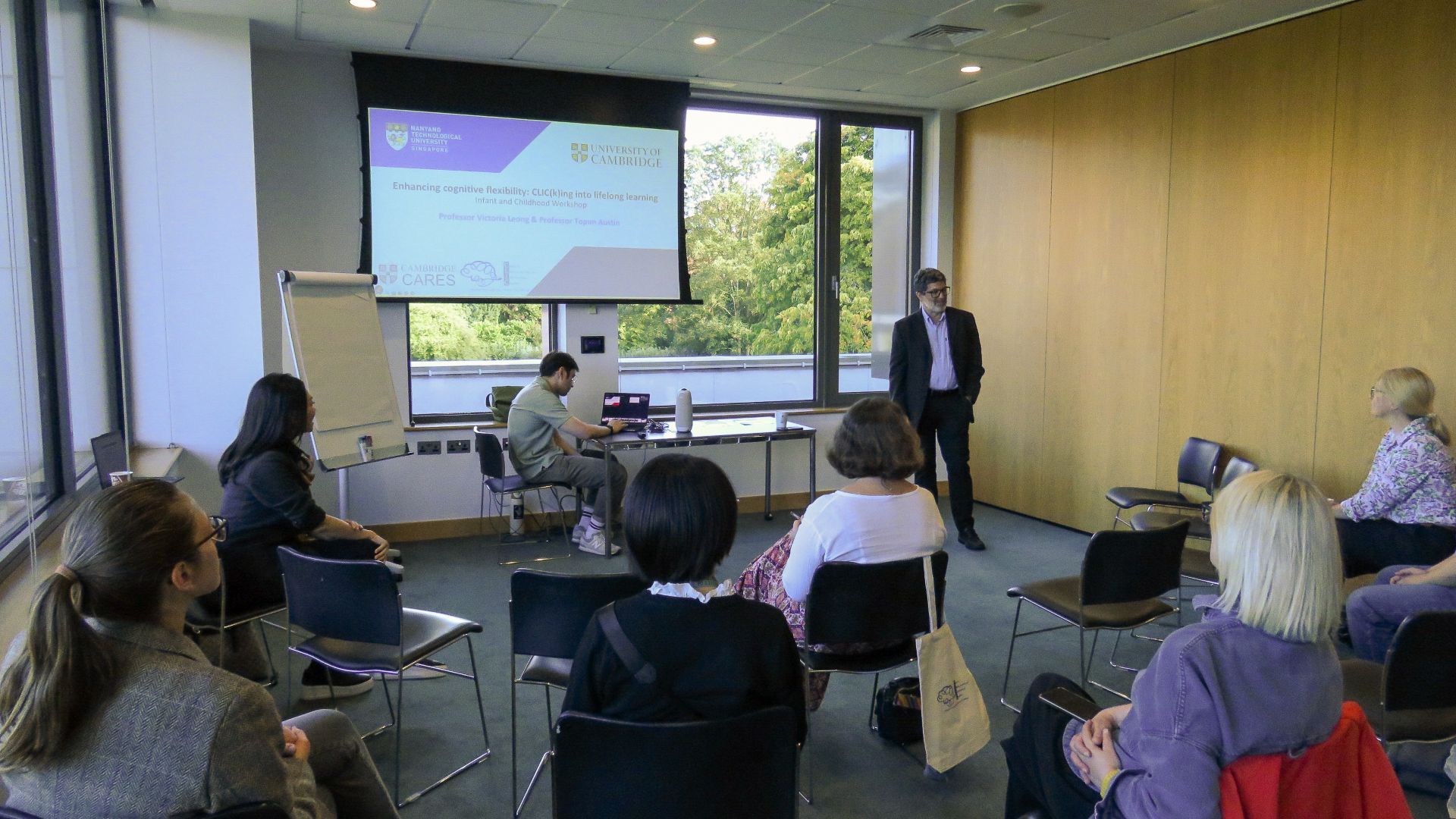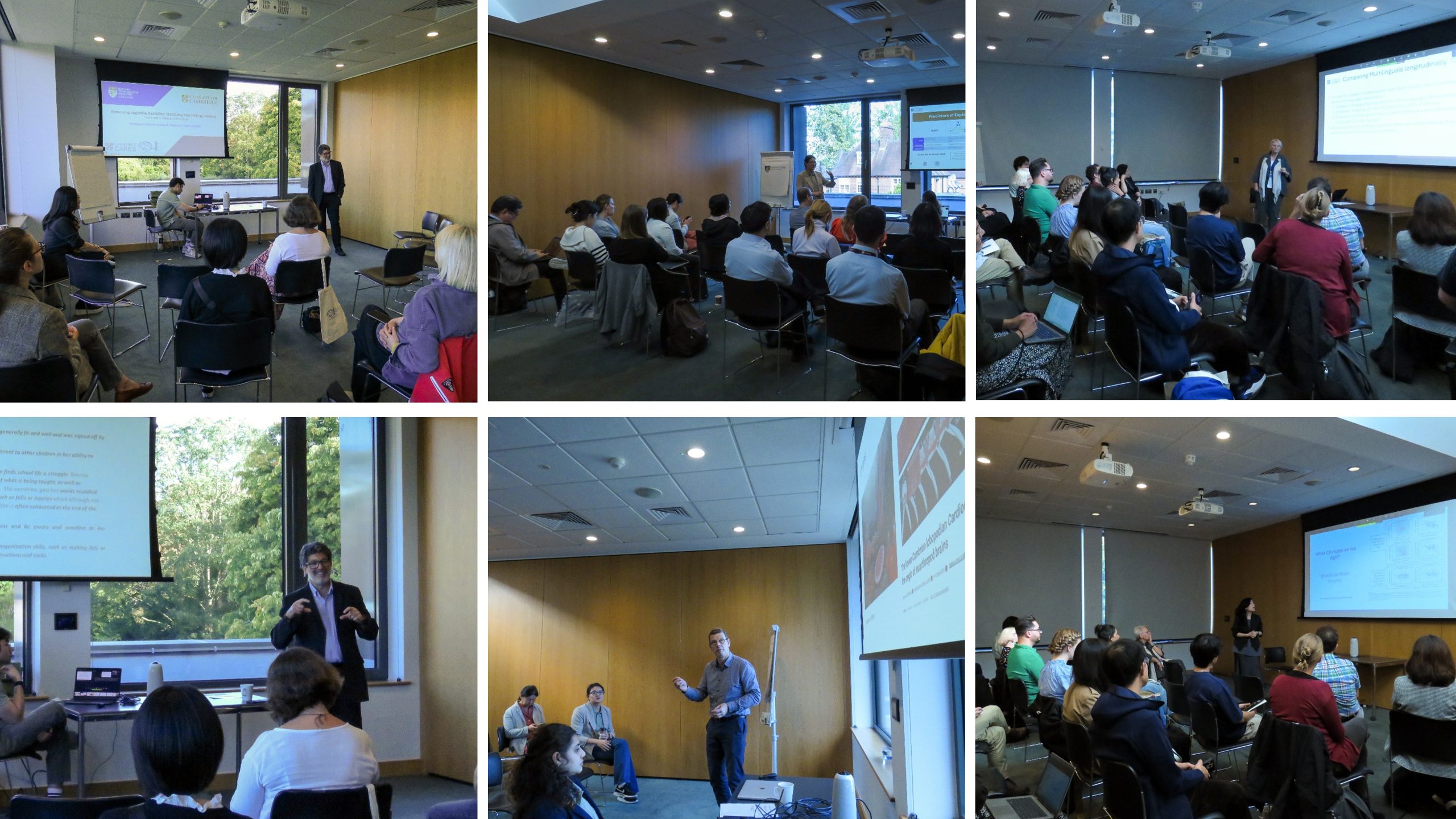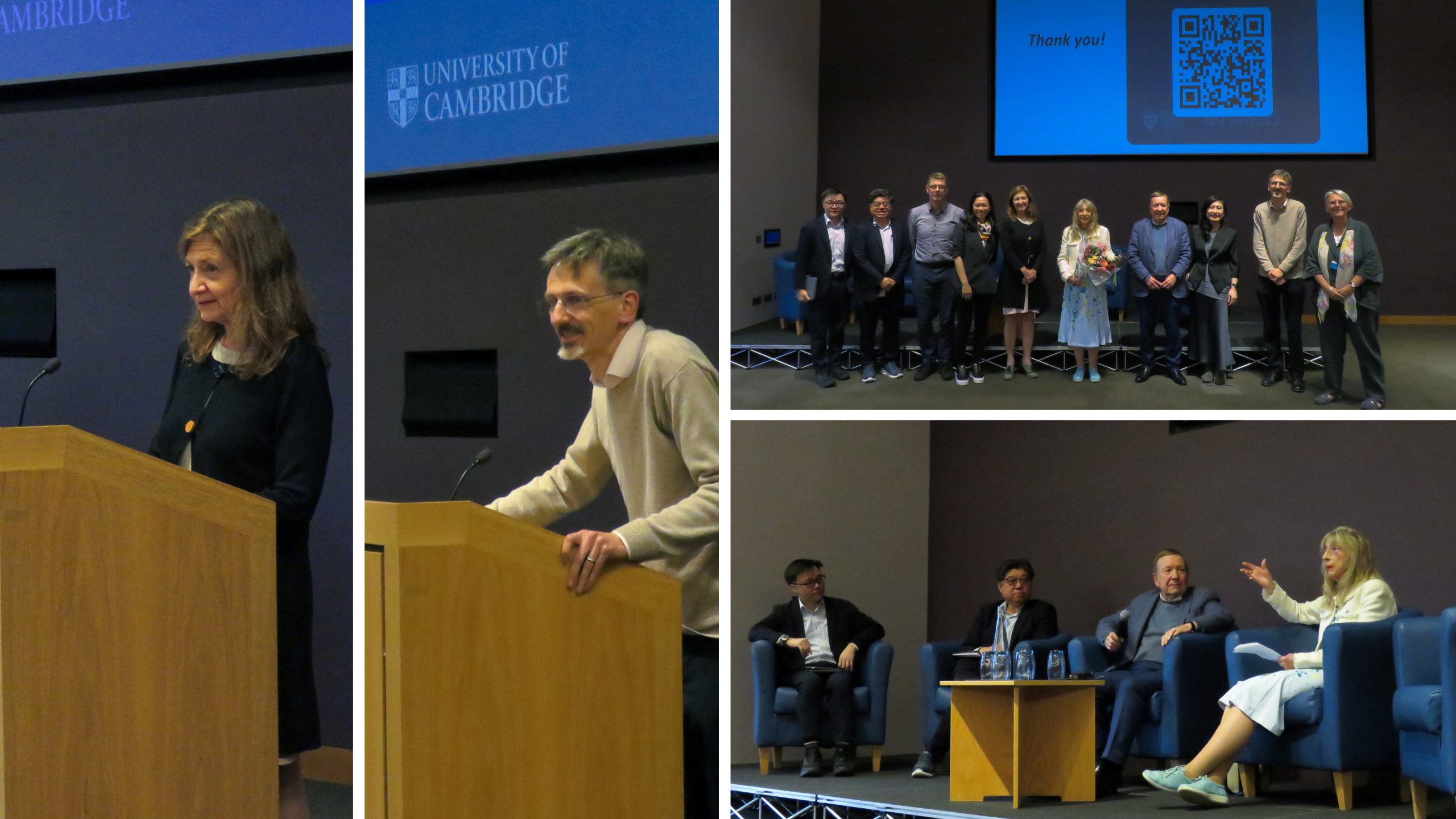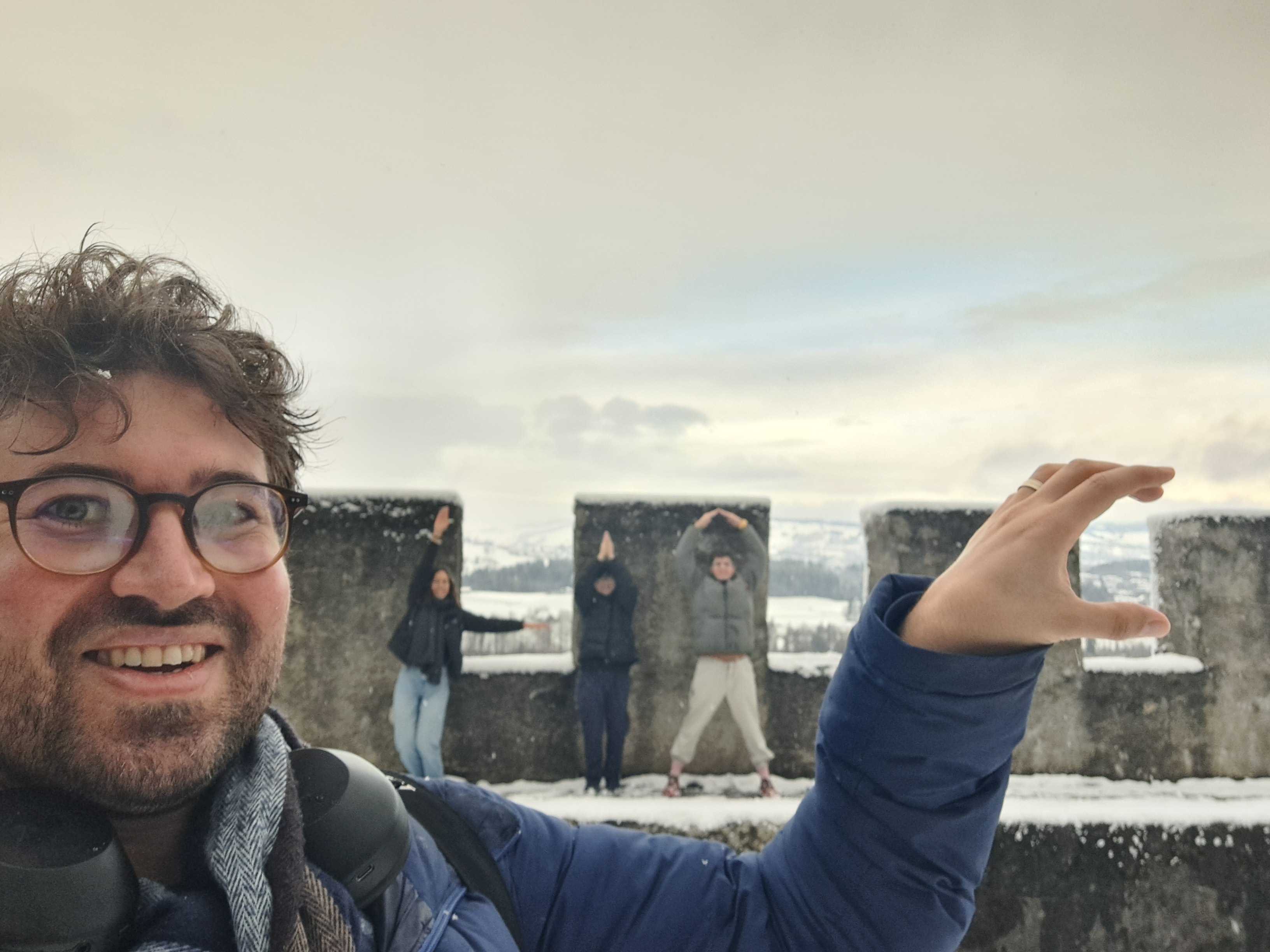
Cover image shows Prof Topun Austin leading the early childhood workshop.
On 12 September 2025, the Centre for Lifelong Learning and Individualised Cognition (CLIC) programme hosted its inaugural public outreach event in Cambridge, shining a spotlight on the role of cognitive flexibility in creativity, education, and lifelong learning. We were delighted to have Prof Deborah Prentice, Vice-Chancellor, and Prof Sir John Aston, Pro-Vice-Chancellor of Research at the University of Cambridge, kindly grace the event.
Cognitive flexibility is the ability to shift perspectives and adapt to new situations. It remains an often-overlooked skill in comparison to more traditional measures of educational achievement, such as intelligence. CLIC’s research brings together experts from Nanyang Technological University and the University of Cambridge to investigate this trait in the Singaporean population.
CLIC designed a half-day programme in Cambridge to translate their research into real-world conversations with audience members from the University and its surroundings, such as schools and local organisations. This started as three parallel workshops examining lifelong learning at different stages of development: early childhood, adolescence, and adulthood in a rapidly changing world.

Caption: Prof Topun Austin and Prof Victoria Leong led the early childhood workshop (left). Dr Chew Lee Teo, Prof John Suckling, and Prof David Hung led the adolescence workshop (middle). Prof Henriëtte Hendriks and Prof Annabel Chen led the adult workshop (right).
This was followed by a panel discussion in the evening to synthesise these insights with distinguished guests Profs Barbara Sahakian, Trevor Robbins, David Hung, Victoria Leong, and Dr Goh Sao-Ee.
Dr Goh was invited by CLIC to contribute knowledge in his role as the Director of the Corporate Research Office at the Ministry of Education in Singapore. He provided his perspective on Singapore as a case study for implementing new learning and education syllabus, highlighting both opportunities and challenges in applying research findings to national education systems.

Caption: Prof Deborah Prentice (left), Prof Sir John Aston (middle), Group photo of the panellists and speakers (top right); from left to right: Dr Goh Sao-Ee, Prof David Hung, Prof John Suckling, Prof Victoria Leong, Prof Deborah Prentice, Prof Barbara Sahakian, Prof Trevor Robbins, Prof Annabel Chen, Prof Sir John Aston, and Prof Henriëtte Hendriks.
We were grateful to hear from our Guest of Honour, Prof Deborah Prentice, Vice-Chancellor of the University of Cambridge, who considered the relevance of lifelong learning research to her own life, drawing on the need to constantly switch between tasks in her work and her hobbies, such as playing the piano.
Prof Sir John Aston, Pro-Vice-Chancellor for Research, concluded the event by emphasising the global relevance of CLIC’s research and the importance of CARES to advancing Cambridge’s international research presence.
Following the team’s successful public outreach event in Singapore in 2023, attracting over 1,500 visitors, the inaugural event in Cambridge allows the team to consider different perspectives to their work and has successfully raised the visibility of CLIC and CARES within Cambridge.
This research is supported by the National Research Foundation, Prime Minister’s Office, Singapore under its Campus for Research Excellence and Technological Enterprise (CREATE) programme.


